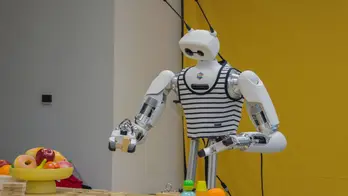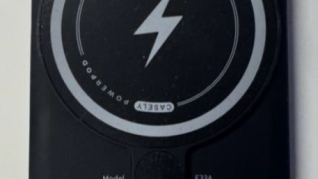A new artificial intelligence-based technology is helping thousands of pet owners reunite with their lost animals, addressing a persistent problem that affects millions of American families each year.
The national database called Love Lost, operated by the nonprofit Petco Love, has already helped reconnect 100,000 owners with their lost pets since its launch in 2021.
"In the sheltering system, it's about 20 percent of lost pets will be reunited, which is simply not enough," said Susanne Kogut, president of Petco Love.
Michael Bown experienced this firsthand when his pitbull-mix, Millie, escaped during a walk in lower Manhattan after slipping out of her collar.
"Because she's a rescue dog, she's very anxious," Bown said. "The only thing I was thinking is, she's trying to find me, and she doesn't know where I am."
While Bown rushed home to search, his mother uploaded Millie's photo to the Love Lost database. Within 14 hours, they received a call that changed everything.
Millie had run 10 miles north to Harlem, where she was struck by a car before being transported an additional 15 miles to a veterinary hospital in Paramus, New Jersey. The hospital had also uploaded Millie's picture to the same free platform, which is run by donations.
How pet tracker technology works
The technology works by identifying unique features of each animal — from eye shape and whisker length to unusual markings and tail curvature. The AI system collects up to 512 data points per pet, using machine learning to search for matching animals.
A key advantage of the system is its ability to recognize pets even when their appearance changes dramatically after getting lost. The database also pulls lost pet reports from social media posts to increase the odds of a successful match.
"People used to put flyers on a telephone pole. Now we have that one virtual telephone pole in the system," Kogut said. "Everyone put the flyers there and we're going to send these pets home!"
More than 3,000 animal shelters nationwide now participate in the program, which is funded entirely by donations. The nonprofit advises pet owners to be cautious of potential scams when using the service. They recommend being wary of anyone requesting money to return a lost pet and suggest limiting communications to the site's secure platform.
Two months after her ordeal and while recovering from a broken leg, Millie is back with Bown and adjusting well to life at home.
"She likes to say 'hi' to every single dog that we see on the walk, regardless of if they want to say 'hi' to her," Bown said. "But she's doing really well."







